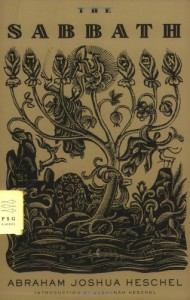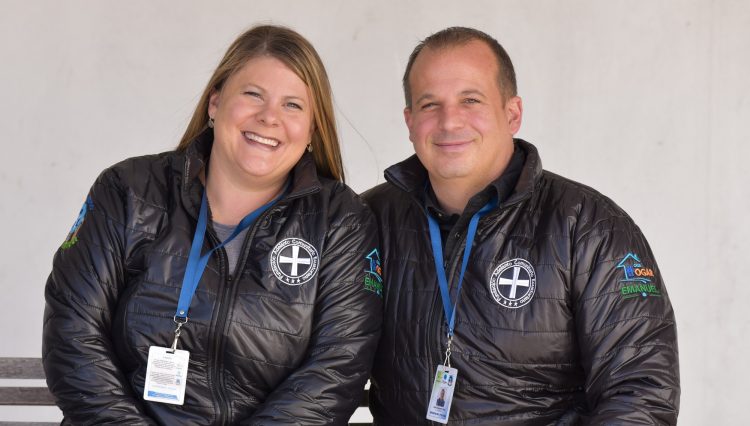 Lent is a season of soul-searching, repentance and reflection. It is a season for contemplation and taking stock. Lent originated in the earliest days of the Christian Church as a preparatory time for Easter, when the faithful rededicated themselves and when converts were instructed in the faith and prepared for baptism. In observing the forty days of Lent, the individual Christian imitates Jesus’ withdrawal into the wilderness for forty days, which is equal to the amount of time it rained for Noah as well as Moses when on Mt. Sinai for the ten commandments and forty was the number of years that the Israelites were in the wilderness wandering.
Lent is a season of soul-searching, repentance and reflection. It is a season for contemplation and taking stock. Lent originated in the earliest days of the Christian Church as a preparatory time for Easter, when the faithful rededicated themselves and when converts were instructed in the faith and prepared for baptism. In observing the forty days of Lent, the individual Christian imitates Jesus’ withdrawal into the wilderness for forty days, which is equal to the amount of time it rained for Noah as well as Moses when on Mt. Sinai for the ten commandments and forty was the number of years that the Israelites were in the wilderness wandering.
You all know that a big part of my “work” during this year of Home Assignment is to visit churches and share about our ministry in Ecuador but my “job” during this time also includes much more than that. One aspect that you may not be aware of is that of education. During my year of Home Assignment, we hope that I can use this time to grow and further my understanding of what it means to be a minister, especially in the context of international mission. I have been meeting (as much as is physically possible) with my mentor, David Mark, and he has helped me in developing a reading list that will help me with this. In addition to this, Kim and I both met with a counselor right after returning from Ecuador and he was able to help us out in developing plan for the year. I also have met with a Spiritual Director who was able to help me out in seeing where I was at in my spiritual life, my day-in and day-out relationship with Jesus.
Here’s why I shared that tangent. And I’m being a little bit transparent here for the sake of sharing a prayer request and the desire for accountability from those close to me. It has become increasingly obvious over the last 8 – 10 years that I am needing to develop a significant sense of Sabbath in my life. From Kim and my extremely busy time during our years in Chicago, transitioning to an extremely hectic and stressful first-term as missionaries in Ecuador (which included raising a small child for sure), I’ve got working hard down, though I’ve always had that one down. For those of you who know me well, you know me as the typical Type-A, driven, task-oriented person who takes pride in what he is able to accomplish. That is what I do well. What I don’t do well is resting. This is one thing that I have always appreciated about Kim as she helps me (sometimes forces me!) to bring balance to my and our lives as she does properly understand the need for rest and play and their importance for our well-being.
But I need to grow in this area. I share all of this for a couple of reasons. One important reason is so that you all can know and understand this area of weakness for me and pray for me and hold me accountable to this area of growth for which I am striving. Secondly, I wanted to share a book I’ve been reading. I want to share this book and some concepts from it not only because it has been meaningful for me, but I think it can also be meaningful for you.
I know what it means to be an American (and also Ecuadorian in this case because they are very similar in this sentiment). It means you work hard and you have very busy lives, one in which it seems every minute is scheduled out. We live in a culture that applauds “hard work” and the fact of “being busy” is bragged about and anyone who is doing too much “resting” could be considered to be “lazy.” The time period has very much passed us by in which Sunday is a sacred day, devoted only to God and quiet time with Him. I know that and understand that, so I don’t think I would even try calling for a return to that. That’s not my point. My point would be is to not do as I have been doing but strive for something similar to that which I am striving for now.
We all need to have a sense of Sabbath in our lives. We need a time for pause and reflection, a time to be with God and to not allow distractions to get in the way.
A book was given to me and Kim (as well as the rest of the families in his church) by a friend and minister, Tyler Harford, pastor at Pleasant View Mennonite Church in Goshen, IN. The book is called “The Sabbath” by Abraham Joshua Heschel. Abraham, for those of you who like me did not know of him before, was a renown Jewish rabbi and theologian. This book is one of his earliest and most celebrated works in which he discuses Jewish spirituality and ritual based living that is found in the Sabbath. I think that there is much that can be learned about the Sabbath for us and after reading this book, I see how a Jewish rabbi is the perfect person to be our instructor.
Before sharing some bits and pieces from the book, just a quick explanation of the Sabbath for those for whom that would be helpful. The word Sabbath comes from the Hebrew word “Shabbat” and basically refers to the seventh day of the week, which is a day dedicated to resting. Our Lord instituted the seventh day as the Sabbath as He demonstrated it to us by resting after the six days of creation (Genesis 2) and then commanded it for His people (Exodus 16 and 20). The point of the Sabbath from the beginning has been a planned time to rest from work and spending dedicated time with our Lord.
Here are some thoughts from “The Sabbath” by Rabbi Heschel:
In his prologue, he discusses the conflict that exists in humanity between space and time, namely our preoccupation with things that are spacial in nature or that in our physical world. Please know that this book was written in 1951, so you can only imagine what Rabbi Heschel would think of this day in age. On page 3, he states, “Technical civilization is man’s conquest of space… To gain control of the world of space is certainly one of our tasks. The danger begins when in gaining power in the realm of space we forfeit all aspirations in the realm of time. There is realm of time where the goal is not to have but to be, not to own but to give, not to control but to share, not to subdue but to be in accord. Life goes wrong when the control of space, the acquisition of things of space, becomes our sole concern.”
He later in the chapter tries to bring in the Biblical perspective on the topic. “The Bible is more concerned with time than with space. It sees the world in the dimension of time. It pays more attention to generations, to events, than to countries, to things; it is more concerned with history than with geography. To understand the teaching of the Bible, one must accept its premise that time has a meaning for life which is at least equal to that of space; that time has a significance and sovereignty of its own.” All of this is on page 6 and earlier on that page, “The higher goal of spiritual living is not amass a wealth of information, but to face sacred moments.” He concludes this chapter, “The meaning of the Sabbath is to celebrate time rather than space. Six days a week we live under the tyranny of space; on the Sabbath, we try to become attuned to holiness in time. It is a day on which we are called upon to share in what is eternal in time, to turn from the results of creation to the mystery of creation; from the world of creation to the creation of the world.” (Page 10). It is helpful to see how the Sabbath fits in God’s perspective and the importance of time and time that is set aside for rest and for Him.
I’ve always seen the Sabbath as time at the end of the week in which we can rest and rejuvenate. Rabbi Heschel helps us in looking at things from in a different light: “The Sabbath is not for the sake of weekdays; the weekdays are for the sake of the Sabbath. It is not an interlude but the climax of living.” (Page 14) And then later, “The work on weekdays and the rest on the seventh day are correlated. The Sabbath is the inspirer, the other days the inspired.” (Page 22).
Words like these have been helpful for me in understanding that not only am I neglecting myself but I am neglecting God in not allowing myself to rest. If I am going to make it through a life of busyness in ministry and not become run-down, I need to develop a proper sense of Sabbath in my life.
I have not finished this book yet and I will probably share more as I go along but I wanted to share this reflection with you at this time. May these words be an encouragement for you in finding your own sense of Sabbath in your spiritual life.
I’ll close with the words from my friend, Pastor Tyler, “I, for one, have been challenged to consider what I do about the longest of the 10 commandments, the one we appear to pay the least attention to.”




 The Santiago Partnership
The Santiago Partnership